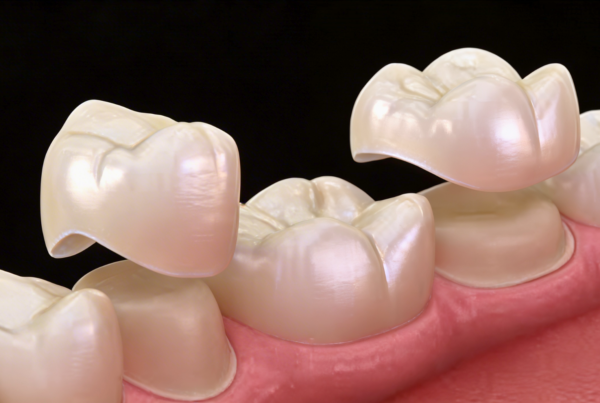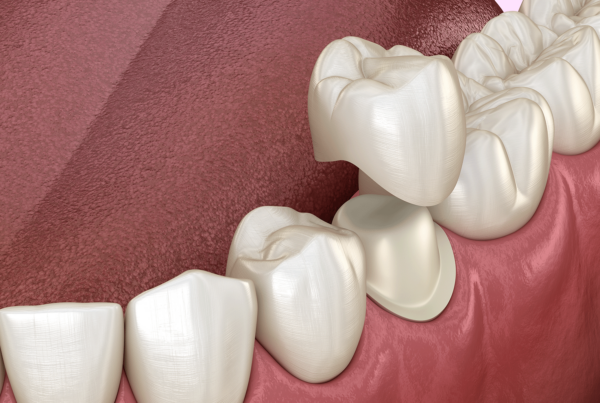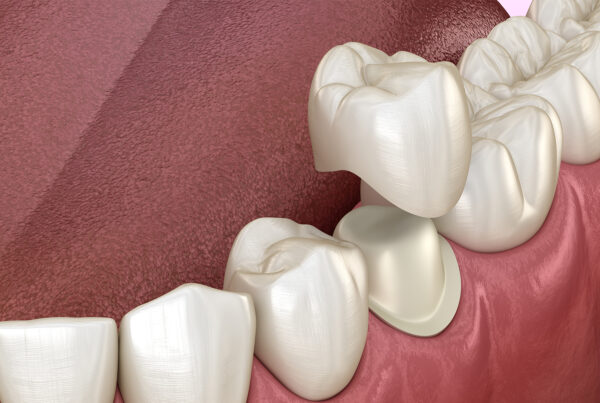What is a Dental Crown?
A dental crown is a tooth-shaped “cap” that is placed over a tooth to restore its shape and size, as well as its strength and appearance.

When cemented in place, crowns completely surround the visible area of a tooth above and below the gum line.
Why Do I Need a Dental Crown?
In the following cases, a dental crown may be required:
- To prevent a weak tooth from shattering (for example, due to rotting) or to hold sections of a broken tooth together
- To repair a tooth that has already been fractured or significantly worn down
- When there isn’t much tooth left, a big filling is used to cover and support a tooth with a large filling
- In order to keep a dental bridge in place.
- To conceal crooked or severely stained teeth
- Coverage for a dental implant
- To make a cosmetic adjustment
On primary (baby) teeth in children, a crown may be used to:
- Save a tooth that has been severely decayed and cannot be restored with a filling.
- Protect the teeth of a youngster who is at high risk for tooth decay, especially if the child struggles with everyday oral hygiene.
- Reduce the use of general anesthesia in children who are unable to fully participate with the requirements of adequate dental care due to age, behavior or medical history.
A pediatric dentist is likely to propose a stainless steel crown in such circumstances.
What Kinds of Crowns Are There?
Permanent crowns are available in stainless steel, all metal (such as gold or another alloy), porcelain-fused-to-metal, resin or ceramic.
- Stainless steel crowns are prefabricated crowns that are typically used as a temporary remedy on permanent teeth. While a permanent crown is manufactured from different materials, the crown protects the tooth or filling. A stainless steel crown is frequently used to cover a primary tooth that has been prepared for children.
- Metals used in crowns include alloys with a high gold or platinum content, as well as base metal alloys, for example, cobalt, chromium and nickel-chromium alloys.
- Porcelain-fused-to-metal dental crowns can match the color of your neighboring teeth (unlike the metallic crowns). However, when compared to metal or resin crowns, this crown type causes more wear to the opposing teeth.
- All-resin dental crowns are less expensive than other forms of crowns However, unlike porcelain-fused-to-metal crowns, they wear down over time and are more prone to fractures.
- All-ceramic or all-porcelain dental crowns provide a greater natural color match than any other crown type and may be more acceptable for people who are allergic to metal. Front and rear teeth can both benefit from all-ceramic crowns.
Temporary versus permanent: Temporary crowns are created in the dentist’s office, but permanent crowns are usually made in a dental laboratory. Temporary crowns are often made of acrylic or stainless steel and can be used as a temporary repair while a permanent crown is being produced in a lab.








